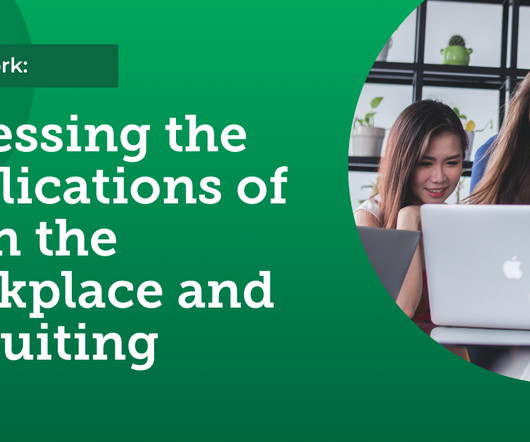AI at Work: Assessing the implications of AI in the workplace and recruiting
Social Talent
OCTOBER 2, 2023
And the potential impact is truly immense: PwC estimates that by 2030, AI could contribute a staggering $15.7 On the plus side, there are many benefits: Build perfect banks of screening and interviewing questions. By relying on data-driven insights devoid of human prejudices, it promises a more diverse and inclusive workforce.














Let's personalize your content